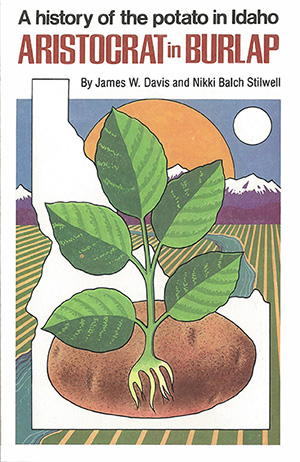The progressive, aggressive shippers took customers away from those who would not break with the past. The Simplot Produce Company, the J. H. Henry Company, the E. S. Harper operation, L. E. Stephens, Bonded Produce, Idaho Potato Growers, T. S. Vanderford, Harvey Schwendiman, Winslow Whiteley, L. S. Taube, Blick and Reese, Rolland Jones Potatoes, and Max Herbold were some of the shippers to establish themselves in the new competitive situation with progressive merchandising and a reputation for quality in the brands they packed.
The early '50s saw even greater changes taking place as the processing industry developed. The number of potatoes going into processed products increased, and processors needed the same field-run lots of potatoes that shippers had traditionally utilized. Many of the best growers contracted their crops to processors, making them unavailable for fresh-market sales. Processing companies were actively bidding for raw supplies that formerly shippers purchased for the fresh market. Some shippers, like Winslow Whiteley, saw the future in processing and ceased shipping operations to join a group that built a frozen French fry plant in Burley.
At the same time, concentration of buying power in the markets was taking place at a rapid rate. In the 1930s, a shipper might have a list of 2,500 customers that he could sell to with some regularity. Produce-distribution patterns throughout the country included many small jobbers who could buy a car of Idaho® potatoes, unload it at the produce terminal in their city, and sell it to small chains, restaurants, and independent grocery outlets.
As supermarket chains became stronger and eliminated their competition, the wholesalers and jobbers began to disappear. This meant that Idaho shippers had fewer customers to sell to and the concentration continued to the point where 15 of the largest buyers in the country were taking 75 to 80 percent of all Idaho® fresh potatoes that were marketed.
When potatoes were nearly all shipped in 100-pound. Burlap bags, they were a true commodity. Sellers and buyers almost never met, and middlemen in the industry controlled the flow of merchandise. Sizing, the growing quality reputation of Idaho, and a variety of different packs in consumer bags contributed to the need for a more-aggressive and specialized type of marketing. Shippers found that they needed to satisfy special needs and cement relations with customers. What had formerly been only a voice on a telephone became a real person at a produce convention or a customer to be called on when making a trade trip. The dealers, who adapted survived; those who did not, went out of business.

